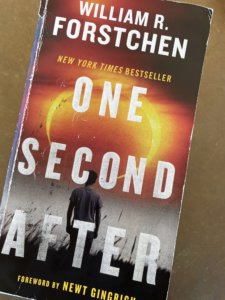Books
PERELANDRA, A Review
PERELANDRA is the second installment in CS Lewis’ space trilogy. Below is my no-spoiler short review, but the longer review that follows the image of PERELANDRA’s cover, will contain spoilers…beware. This is not a children’s book, but I recommend this novel to all ages who like the story. For all readers, taking the time to discuss after or along the way will deepen philosophical and theological understanding.
Link to OUT OF THE SILENT PLANET for a review of the first book in the trilogy.
5 Reasons to Read PERELANDRA, A Classic Science Fiction Story
- One of the more unique portrayals in literature of paradise and/or a pre-fallen world
- Beautiful CS Lewis prose
- The ideas are put forward clearly and by someone well acquainted with 20th century ideas
- Finally…a strong female character (there were none in the first novel)
- Read all three to make sense of what Lewis was trying to accomplish in the longer narrative arc
3 Reasons PERELANDRA is My Least Favorite of the Trilogy
- There are so few characters and the villain does not arrive until about 1/3 of the way into the book
- Not a lot of drama…there is a slow build and eventually, high drama, but it takes the novel a while to arrive (see #1)
- A lot of speech-making in the final pages. Interesting ideas, but coming at me in my least favorite non-dramatic package
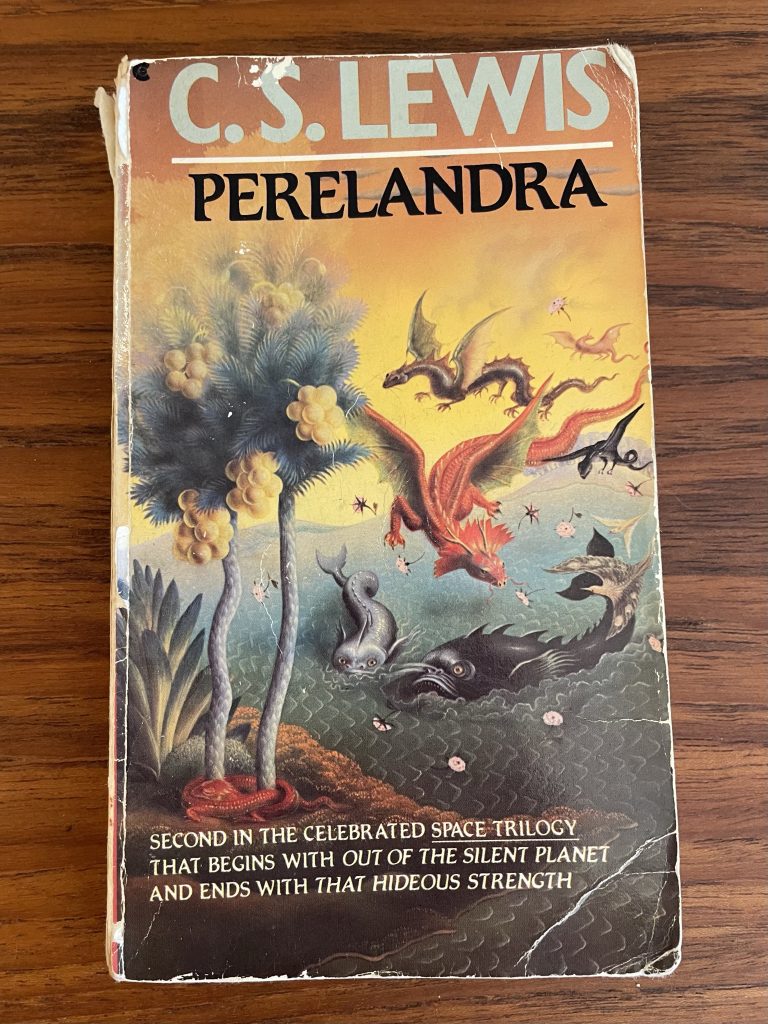
The Longer Review (With Spoilers)
While PERELANDRA is my least favorite of the three books Lewis wrote in the scifi genre, it does have its merits.
For one, anyone who has read his Narnia books, knows how well CS Lewis puts his imagination on the page. He has the ability to create a world both strange and fabulous and took on a bold task to put before the reader a paradise, a pre-civilization and pre-fallen planet with only two human-like people. Basically, he created an Eden. And how would one write this in a convincing way?
This excerpt, one of many examples…just gorgeous.
Now he had come to a part of the wood where great globes of yellow fruit hung from the trees–clustered as toy-balloons are clustered on the back of a balloon-man and about the same size. He picked one of them and turned it over and over. The rind was smooth and firm and seemed impossible to tear open. Then by accident, one of his fingers punctured it and went through into coldness. After a moment’s hesitation, he put the little aperture to his lips. He had meant to extract the smallest experimental sip, but the first taste put his caution all to flight. It was, of course, a taste, just as his thirst and hunger had been thirst and hunger. But then it was so different than any other taste that it seemed a mere pedantry to call it taste at all. It was like the discovery of a totally new genus of pleasure, something unheard of among men, out of all reckoning, beyond all covenant. For one draught of this on earth wars would be fought and nations betrayed.
Elwin Ransom, a professor of philology, is the narrator here. He was also the protagonist in Out of the Silent Planet. In this excerpt, he is telling his tale to a fictionalized version of CS Lewis after returning from his mission to the planet Perelandra. Ransom was sent to Perelandra by the angelic ruler of Mars (Malacandra). The reader is acquainted with this ruler from the previous book. In Out of the Silent Planet, Ransom is kidnapped and brought to Malacandra. That is where he meets Oyarsa, the ruler of Mars. Oyarsa does make an appearance in this novel, as does Weston, one of the academics who kidnapped Ransom in the first story. Weston, the primary rival to Ransom, acts as the tempter in this narrative. He does this not by his own cleverness and strength, but by something more frightening. Weston has given himself over to the bent angelic ruler of Earth, Satan. After Weston arrives on Perelandra in his space vessel, Ransom comes to understand his mission, that he has been sent to thwart the bent Oyarsa by thwarting Weston.
In the story, Weston is an academic with the worst intellectual vices; hubris combined with a flamboyant humanism that borders on narcissism. Tragically, he falls under a true evil in his search of spiritual answers to the mysteries he experienced on Malacandra. Weston’s journey into evil reads like something out of a horror novel (or the Bible).
“Idiot,” said Weston. His voice was almost a howl and he had risen to his feet. “Idiot,” he repeated. “Can you understand nothing?…This is the old accursed dualism in another form. There is no possible distinction in concrete thought between me and the universe. In so far as I am the conductor of the central forward pressure of the universe, I am it. Do you see, you timid, scruple-mongering fool? I am the Universe. I, Weston, am your God and your Devil. I call the Force into me completely…”
Then horrible things began happening. A spasm like that preceding a deadly vomit twisted Weston’s face out of recognition. As it passed, for one second something like the old Weston reappeared–the Old Weston, staring with eyes of horror and howling, “Ransom, Ransom! For Christ’s sake don’t let them—” and instantly his whole body spun round as if he had been hit by a revolver-bullet and he fell to the earth, and was there rolling at Ransom’s feet, slavering and chattering and tearing up the moss by the handfuls…
I was in my thirties the last time I read PERELANDRA and I did not remember how clearly this Weston character gives himself over to evil. Nor did I remember that Ransom comes to the realization that he will have to destroy Weston in hand to hand combat if he is to defeat him.
That Ransom believes he must assassinate his rival provoked my horror. Moreover, the scenes of his battle with Weston are brutal. Lewis does not hold back on that reality, but the idea of this existential battle brought to mind Dietrich Bonhoeffer. Lewis might never have known Bonhoeffer personally, but the ideas Bonhoeffer was writing about and preaching about (in Hitler’s Germany) were likely familiar to him…as they were to every thinking Christian of the time.
Bonhoeffer, while struggling to be a faithful clergy member under Nazi rule in Germany, came to terms with the idea that it was in fact a righteous or just act to kill a man who had fully given himself over to evil. That is why Bonhoeffer was executed in the end, as he played a role in an assassination attempt against Hitler. Below is an excerpt of a sermon on Colossians 3:1-4, a sermon he gave most likely after he had made the decision to collaborate with a part of the resistance determined to assassinate the Fürher.
“Instead, and precisely because our minds are set on things above, we are that much more stubborn and purposeful in protesting here on earth… Does it have to be so that Christianity, which began as immensely revolutionary, now has to remain conservative for all time? That every new movement has to blaze its path without the church, and that the church always takes twenty years to see what has actually happened? If it really must be so, then we must not be surprised when, for our church as well, times come when the blood of martyrs will be demanded. But this blood, if we truly have the courage and honour and loyalty to shed it, will not be so innocent and shining as that of the first witnesses. Our blood will be overlaid with our own great guilt.” (DBW 11, 446) (Schlingensiepen, Kindle Location 2427)
Bonhoeffer’s words evoke the idea that a conservative church is potentially an anemic one. His mention of our great guilt in the sermon I took two ways. One, the church is guilty when it does not act (or waits too long) to stand up to evil. Two, if it does join the revolutionaries, it potentially falls under the guilt of questionable acts. When evil can only be defeated by an act that lays outside of the norm of Christian ethics, there is plenty of guilt to go around. However, Bonhoeffer did not shrink back from taking on that guilt for what he (and history) thought to be the greater good. Moreover, his writings on this remain strong pillars in just-war theory and the Christian struggle with realism versus pacifism.
Lewis travels a similar line of reasoning in this novel and it should not surprise the reader that when the character Ransom leaves the planet Perelandra, he leaves having accomplished his task, but with a wound on his foot that refuses to heal this side of heaven.
OUT OF THE SILENT PLANET, A No Spoiler Review
OUT OF THE SILENT PLANET, by CS Lewis came about as a result of a coin toss between JRR Tolkien and CS Lewis in the 1930s. The understanding between the two men; one side of the coin would mean writing a science fiction novel, the other side would mean writing a time travel novel. The coin was tossed, Lewis was assigned the scifi novel. Tolkien was assigned the time travel novel. Tolkien never wrote his. Lewis did, published in 1938, twelve years before Narnia. In fact, he wound up writing three books of science fiction. OUT OF THE SILENT PLANET, which I will review here, was the first. This story is sophisticated, but there is no reason a YA reader or a very learned middle grade reader cannot take on this story. For educators thinking about assigning this book to a young person, a solid discussion on the story would make the experience a profound one.
The Short Review: 4 Reasons to Read OUT OF THE SILENT PLANET
- Superb writing and because this is CS Lewis, when you’re finished reading, your brain will have expanded
- Scintillating ideas that awaken the conscience…Plunge yourself into the mindset of a WWI veteran and a brilliant observer of history and soak in Lewis’ crucial critique of pre-WWII Europe
- Absorb Lewis’ Christian concept of God/Creator…the beauty and the moral implications
- Gain a vision for the power of fiction (imaginative science fiction in particular) as a way to change hearts and minds.
A Few More Details:
When Lewis and his friend and colleague, JRR Tolkien, both veterans of WWI, decided to toss that coin, they had been musing together about the sad state of fiction. They believed that the godless universe theory unleashed to some degree by Darwinists and proponents of the Hegelian superstate/superman, was giving rise to real beliefs (like eugenics which both understood as dangerous and evil) inside academia and government. More troublesome, these theories were making their way into fiction and infecting the broader population through story.
Americans fought in WWII and helped to defeat Hitler, so my nation (I am a US citizen) often forgets how the eugenics movement in the US was accepted and backed by some of our highest state actors, like President Woodrow Wilson. We in the US forget, maybe conveniently so, that we too were traveling on a similar road as the Nazis. This is how pervasive these ideas were and back in that day, they were considered progressive. It turns out, anything can be labeled progressive. A cautionary and hopefully humbling reminder to us in the 21st century.
Marxist ideology was also suspect in Lewis’ eyes. Both Marxism and Fascism preached an exercising of power where the end justifies the means. That idea was an abomination to Lewis and Tolkien, the rejection of which made its ways into the Lord of Rings trilogy, as it did into all of Lewis’ writings. As Christians (Lewis, an Anglican, Tolkien, a Catholic), they challenged the idea that the state has permission to sacrifice an individual for some greater good, not without that individual willingly giving up her/his life, soldiers willing to fight to defeat the existential enemy of a free state being one example of this proper sacrifice, something both of these men witnessed first hand.
In regard to reading OUT OF THE SILENT PLANET, knowing a little 20th century history and philosophy definitely helps the reader enter into the world of Elwin Ransom, the hero of the story, but even without that knowledge, this is a fascinating and well written tale. Ransom, a philologist, is on a walking tour of rural England. He is kidnapped and taken to Malacandra (the planet Mars). What unfolds is a story about relationship and curiosity (Ransom’s journey) versus dominance exercised by violence (the journey of his kidnappers). The narrative provides a resolution that exemplifies the idea that there is a standard of justice that is literally universal.
This is my third time reading OUT OF THE SILENT PLANET (notice my beat-up copy in the image above…not sure it will survive another read-through) and after finishing the book this round, I found myself dreaming about grace and kindness and goodness while I slept…something that doesn’t often happen for me after reading science fiction before bed.
Tales of the Walking Dead: EVIE/JOE, A No-Spoiler Review
4 Reasons I recommend EVIE/JOE, The Short Review
EVIE/JOE is first installment of The Walking Dead’s anthology series: Tales of the Walking Dead. Basically all of these tales will be in short-form, focusing on different characters each time, contained in one 45ish minute episode. EVIE/JOE is set in The Walking Dead universe which means there is a lot of gore, so consider this a PG-13 or R-rated flick. It’s not for everyone! You can watch this for free on Amazon Prime and possibly YouTube TV…still figuring that out.
I loved this short, but I love zombie films/stories and maintain a special fondness for The Walking Dead version of a post-zombie reality. Why might you want to watch?
- Believable and likeable characters (played by actors, Olivia Munn and Terry Crews)
- Well-done shorts like this must be targeted in its “one thing” it tries to do well and this short succeeded in doing that
- A familiar world, where context needs not be explained
- Decent tension and a surprising twist in the end
The Longer Review
First, I’ll say a little about the short form. There are a few reasons I appreciate shorts like EVIE/JOE. One is that I find it pleasurable to see a story, beginning, middle and end in one sitting. As a kid I loved The Twilight Zone for this reason. Second, the short form forces the story-teller to focus. My family members have heard me complain many times about a number of the more recent Marvel Universe films when there are way too many characters to properly give them all meaningful story arcs with the overall effect feeling flat and superficial (and for me, unsatisfying). There are three characters in this story. Four, if you count the dog. Third, the short form draws in amazing actors who want the chance to play a different/unique character but without the huge commitment of the series actor, who has to put the rest of his/her acting career on hold while the series is ongoing. This was an issue for Andrew Lincoln (Rick Grimes of The Walking Dead).
You could say the same about “guest” directors/writers. One short attracts very interesting directors and writers. I’m assuming some of these artists are fans of TWD universe but see room to add to that universe. Their vision can be surprising and wonderful.
EVIE/JOE begins with Joe, a survivalist living alone with his beloved Doberman. When the story opens, Joe is rewatching a football game. Civilization as we know it disappeared over a year before (see the carefully placed whiteboard in the first scene). Joe lives underground and seems to have enough electricity and food to stay happy and alive, but when his dog becomes lame, he must carry him up to the ground to go the bathroom and eventually, a group of zombies attack. The pup is bitten, dies and is buried by Joe. The subsequent flashes of Joe become increasingly depressing. A new level of suffering has entered into his life. Grief around his dog’s death and the reality that there is no one and nothing to really live for pushes him to venture out of his hole and seek another survivalist, someone he had contacted at a date when communication outside his hole was possible. That is when he meets Evie.
Their relationship becomes the focal point and draws out the true characters of them both. Both are lonely. Both are searching. There is a question about whether or not they will trust each other and whether or not they will succeed in finding what they most hope for. Evie is a hippy, who learned how to survive. Joe is a true survivalist. Their banter is funny and revealing.
It’s pleasurable to see a new setting here as well (in regards to The Walking Dead). This is the Upper Midwest, primarily Ohio and Michigan. There is evidence of survivors and evidence of death. The zombies aren’t the primary threat, but they’re around. As the audience learns pretty quickly in The Walking Dead universe, the zombies are way less scary than the hyper-terrified humans. This story is consistent on that front.
Eventually, there is an ultimate choice…choosing sides, choosing to trust or not trust and there is a moment of facing death. EVIE/JOE will not disappoint if this is the humanity you’re looking for.
FOR ALL MANKIND, A No Spoiler Review
Apple Plus released its third season of FOR ALL MANKIND this month. I have not viewed any of the 3rd season but I did watch all of 1 and 2 and loved them. What follows will be the short review and a longer review of season 1 and 2. If you’re convinced by the short review…start watching now. If you need a little more data, the longer review will give you a better idea of why this many hours of consumption might be worth your time. The show is rated R for a few racy sex scenes, but if your young person can handle that, the education piece is interesting. A bit of history can be etched out or explained as some of the “alternative” version comes across the screen. It’s portrayal of communist USSR rings true. It also captures something of the spirit of the age for each decade, especially the urgency around the space race of the 1960s.
The Short Review: 6 Reasons I Recommend FOR ALL MANKIND
- If you love alternative history narratives like The Man in the High Castle, you will appreciate this story
- If you love nostalgia settings and music, think Stranger Things, you will love being immersed in this story-world, which starts in the 1960s, but spans decades.
- Most of us appreciate great casting. FOR ALL MANKIND will not disappoint
- Top-notch production value, this includes the writing, the special effects and the acting
- Good pacing. A lot of action, drama and tension throughout
- A thoughtful story. A sprinkling of social commentary for our current time…some of that commentary I liked, some I felt was contrived, but the ideas are worthy of our attention
The Longer Review: (this review contains a couple of small spoilers)
The USSR and the US are in a space race in this alternative history, set during the cold war. The USSR has landed on the moon first, claimed it as territory, and has aims to build a military compound. This traumatizes the US as a nation. The first episode captures the feeling well as it feels like a gut-punch watching the Soviet flag raised on the moon and hearing the first words of the Russian Cosmonaut as he takes the first steps…The Walter Cronkite figure on the television news reports as follows:
The first man to set foot on the moon spoke just moments ago. “I take this step for my country, for my people, and for the Marxist-Leninist way of life. Knowing that today is but one small step on a journey that someday will take us all to the stars.”
FOR ALL MANKIND was created by Ronald D. Moore (Battlestar Galactica, Star Trek and Outlander), Matt Wolpert and Ben Nedivi. They take the “what if Russia had landed on the moon before we did” scenario and create a similar history to our own, but with differences that intrigue. The writers, I surmise, are progressive in their leanings because progressive values make their way into the script and into a historically white male dominated NASA long before reality. Sometimes, it feels heavy-handed, like the writers are checking the boxes of gender and racial diversity. However, the results do make for a delightfully diverse cast.
In episode 1, the audience meets Margo Madison (pictured above, played by Wrenn Schmidt) at the beginning point of her NASA career where she is the only woman in the male dominated control center. By season 2, she emerges as NASA’s head.
By the finale of season 2, women, a couple of non-binary individuals (though they keep their gender preferences a secret), African Americans and even a Mexican female immigrant who came over the border illegally as a child, are recruited by the NASA of FOR ALL MANKIND. And who can say it might not have been this way had the US felt the pressure of its failure to land first on the moon? Also, the Soviets promote the first female astronaut, shaming the US for its lack of representation.
All the characters are well-drawn and most are courageous and longsuffering in various ways. Joel Kinnaman (The Killing, Hanna and Altered Carbon) plays Ed Baldwin, an astronaut with a big mouth who in a drunken state reveals to a reporter how NASA lost the space race because of an aversion to risk. He is punished for the reveal (taken off astronaut duty and given a desk job), but his words capture NASA’s very real dilemma. In order to stay equal to, or to get ahead of the USSR, risks will have to be taken. Many characters of significance will lose their lives to achieve the elusive prize of space dominance.
This is where the series gives commentary on current society as it poses the questions that plague our century…Who will dominate the future? US and free societies (in general) have dominated the global order since WWII, but that prize came at a great cost to many of our ancestors. We have inherited something hard fought, but that inheritance is being challenged and chipped away by those who see themselves as more deserving of dominance…and perhaps they are, but some moments in history, even national failures, have the capacity to motivate a new generation of warriors. That message shines through in FOR ALL MANKIND.
THE BATMAN, God and Justice. Warning: So Many Spoilers
Last night I had the privilege of watching Matt Reeve’s THE BATMAN. I enjoyed the film, though it was tough to watch, a tense experience. Graphic violence is implied more than shown, but evil and darkness are palpable in every scene. Not that the film isn’t a beautifully crafted story…the dingy special effects are stylized to evoke the brokenness of Gotham. They reveal a failing society in every frame. It’s pouring rain and night during most of THE BATMAN, and of those scenes shot in the day, the skies are gray.
Of course, this is a familiar setting for our comic book hero, the Dark Knight, but what is less familiar is the tone of utter hopelessness associated with that darkness. Violence plagues the city of Bruce Wayne. In the opening sequence, it is Halloween night and masked hoodlums run wild across Gotham causing mayhem, and at one point a gang of them threaten an Asian American man in a subway station, hitting too close to home for many of us. Halloween is also the night the Riddler commits his first murder.
The brutality of humanity is on display in THE BATMAN, begging the question: When is a society so corrupt, so evil, so far gone, there is no hope of renewal and it must be destroyed? This film earned a PG-13 rating. It’s possible a mature teen could watch this and grapple with the question posed above. It’s a hard question, but one that ought to be pondered by all of us.
The rivalry between Batman and the Riddler draws out themes of righteousness versus justice. In certain respects, both men are the same. Both are trying to root out corruption, Both are straining toward a just society. Batman roots out injustice by defending the good guys and working within the system. Though outside the formal police force, his link to Lt. Gordon cannot be denied, nor can anyone doubt his insider status as Bruce Wayne, the orphaned son of a beloved city father. The Riddler however, also an orphan, stands on the outside. He roots out evil by exposing it, by punishing via execution and making a public example of those who have betrayed justice. The Riddler’s first murder is the mayor of the city and subsequently other politicians and law enforcement, those caretakers of Gotham who have made their beds with the mob. Because of these assassinations and the attention he draws to corruption, Batman along with the audience are forced to focus on what is a massively broken system at the highest levels of the city.
The audience wonders whether ANY politicians or police are clean in Gotham, and can such evil be undone when the gatekeepers of justice have become those who perpetrate injustice? The Riddler sees no way out but total destruction.
On the narrative journey, Batman faces truths about his own father. The idealism with which he has viewed his parentage is shattered, evoking for me the psalmist’s words from Psalm 14, text lifted by the Apostle Paul and placed in his letter to the Romans.
The fool says in his heart, “There is no God.”
They are corrupt, they do abominable deeds;
there is none who does good.
2 The Lord looks down from heaven on the children of man,
to see if there are any who understand,
who seek after God.
3 They have all turned aside; together they have become corrupt;
there is none who does good,
not even one.
Why do I include this? In the film, I think Reeves is trying to make a theological point. I bend toward theological rather than philosophical because the powerful reality (loaded imagery) at the end of the film is a flood…as in Noah and the Biblical account of the destruction of evil.
In THE BATMAN, the Riddler has set up bombs that line the seawall on Gotham’s perimeter. The Riddler has determined that Gotham is irredeemable. Gotham must die, drown and be cleansed of its evil. Only then will it be reborn. A flood to destroy evil? This is as old a tale as humanity, understood within Judaism, Islam and Christianity. There comes a time when a civilization is so broken, every living thing has to be destroyed in order for evil to be rooted out. The Riddler sets himself up as God and judge. He determines that Gotham is a total loss. Total destruction is the ONLY remedy for its evil.
Batman represents another side of this argument. Don’t miss the fact that Selina (the Catwoman character wonderfully portrayed by Zöe Kravitz), tries to coax Batman to remove himself permanently from Gotham. I can’t recall her final words to Batman precisely, but they were something like…staying here and trying to save Gotham will kill you.
That comment is an homage to a redemptive sacrifice and Batman as Christ figure…sort of…The audience already knows how much life has been sapped out of the young Bruce Wayne because of his mission to avenge his father, but also to help Gotham. Batman’s motives are often mixed here. Interestingly, this Batman, the Reeves’ Batman grows. He realizes that vengeance is not the full story of how he must respond to evil. To truly honor his dead father and mother, he must do more. He must minister good to the people of Gotham. Two images of Batman in the final scenes make my point. One is him diving into the abyss, lighting his flare and leading innocent people by hand, out of the flood, out of judgment. The other is him helping a wounded girl on a stretcher and holding her hand as she seeks his assurance and is flown away to safety, to healing. Reeves connects the hero, the savior, to humanity with that touch. Redemption in this case is a touch that is gentle and personal, the opposite of violence. Batmas has crossed over from vengeance to love.
The Russia Ukrainian War is raging as I write. Yesterday, Russian planes targeted a shelter in Mariupol, a place holding hundreds of children and women. On the ground on either side of this structure, the Ukrainians had written in Russian the words “children” in very large script, large enough to see from the air. How does one grapple with the bombing of this place, with the destruction of so many innocents? (The number of dead is still undetermined…I will correct this when the fog of war has dissipated.)
Update: on March 25, it was believe that 300 had died in the bombing. In early May, after a thorough AP investigation, it was revealed that 600 likely died in Mariupol theater airstrike.
So, I end with this image, Jesus of Sinai, Pantocrator, an icon from the the 6th century. For Christians of the 6th century, most of whom were illiterate, icons like this were essential to their faith because embedded within each icon are theological truths. For them, looking at an icon was like reading a holy text. With Jesus of Sinai, notice the weird lighting on his face, one side darker and one side lighter. That is intentional. Why? The post-modern viewer might not discern what his face represents but to early Christians, they represent two sides of the creator as God looks out over humanity. If you put up your hand and cover one side of the Messiah’s face, you see a bright and compassionate mouth and eye. When you cover the other side, you see a darker eye, an angry glare. The iconographer and the theologians of that time understood that both are sides of God and both are legitimate responses to evil. The story as laid out in the Bible is of God grappling daily with a society gone wrong. On one hand, he is merciful and forgiving, on the other, he is vengeful and ready to punish, to eradicate evil.
Current people of faith, people like me, struggle with that darker view of God, but we might do well to ponder it. Noah and the flood tell the story of God as do Jesus and the cross. And here we see the author of the new Batman film exploring both reactions to evil, but favoring mercy in the end.
We live in a complicated world, but some truths/questions find their way into our art, even if that art is embodied by a comic book character.
Kudos to Reeves for attempting something really big in his portrayal of THE BATMAN.
THE SILENT SEA, More Brilliance From the Korean Film Industry, A No-Spoiler Review of the Netflix Miniseries
First, the Short Review
6 Reasons I Recommend THE SILENT SEA
- Beautiful production overall, including visuals that underlie the creepy vibe
- Featured a number of my favorite Korean actors, a few you might recognize if Squid Game was on your watch list this past year
- Plenty tension and surprises/frights
- A number of science fiction and haunted house tropes embedded in the story and various characters (see more in longer review)
- The relationships and particularly, the relationship to authority feel authentically Korean. (also, see longer review)
- You know I love the miniseries genre, 1-hour installments of great storytelling that comes to a conclusion without an agonizing cliffhanger

Longer Review
SILENT SEA is the story about a mission to the moon to find water. I rate this series PG-13. No sexual content in this production, but there are dead bodies, and some gore. Family-friendly if your teens are mature. It’s a fun, suspenseful ride.
The first episode quickly gives the viewer the high stakes for this mission. Drought has plagued the Earth. Water is the resource most valuable and due to its scarcity, the planet has become a wasteland. Water is rationed to such a degree, many have suffered physically, billions have died. The wealthy nations have gone into space to find a water source. Most abandoned the idea of finding water on the moon after searching, but the South Korean government kept snooping. There has been a top-secret program at a large moon station that was believed to have borne fruit, but suddenly…the experiment falters. Everyone dies all at once on the moon station. The earthbound directors, including Heo Sung-tae (pictured near end of review) initiate another mission to go to the station and investigate the truth, but secrets pulse underneath the surface of this mission and become one aspect of tension in the story. The authorities hold their cards close and the military and science leaders do not push back, though they suspect something fishy. This may or may not be an aspect of Korean-specific deference to authority, but the screenwriter exploits what I understand as deference in a way that serves the story. Also, this is where the nuanced acting plays such a powerful role in the unfolding of the narrative. The audience can see in the face of Bae Doona, the slight suggestion of twitch, a blink, a stern jaw…we see it, but barely and it helps us know that she understands that she is being deceived. Yet, in most of the outward behavior, she acts the true soldier. Doona is great at this nuanced acting, but she’s just one, among a number of these performers, who pull off such nuance. In my mind, THE SILENT SEA showcases superb writing and better acting than Squid Game. Click for a review of Squid Game

Once the mission lands on the moon, what unfolds reminded me of Ridley Scott’s Alien, in all the best ways. Yes, there will be corpses, tunnels, darkness, betrayals, a terrible and contagious sickness, but there will be one character who keeps her eyes on the prize. Dr. Song (Bae Doona) is intent on discovering the truth. In part, she seeks the truth because her sister is one of the corpses and the holder of many of the secrets. Doona as Dr. Song, pictured above, is a female lead in the Korean zombie series, Kingdom. To see my review of Kingdom, click here
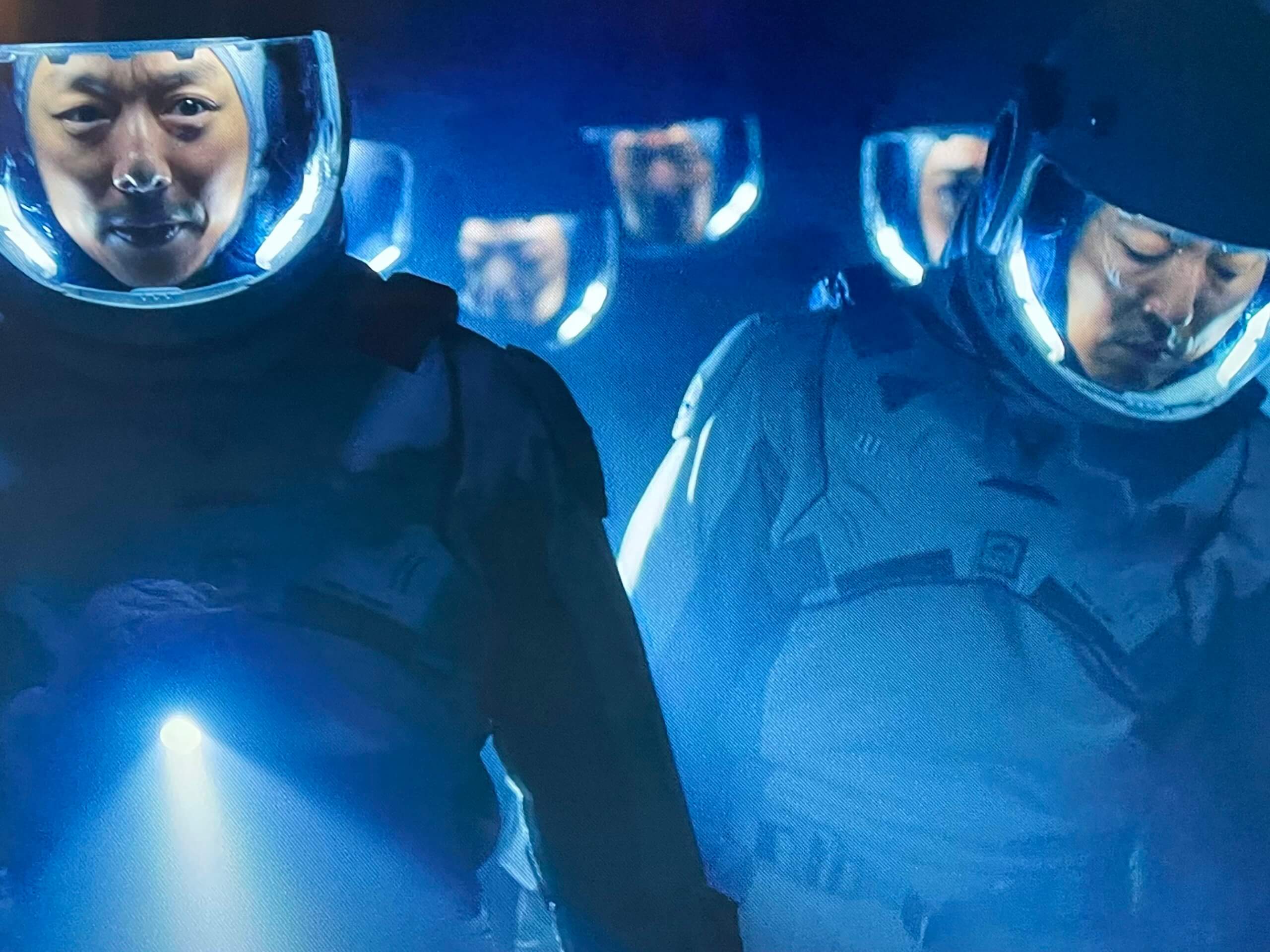
I beat this drum a lot but I do feel that Netflix streaming continues to find the best international productions and when it comes to science fiction, the Korean film/media community is putting out a lot of great product. Produced by Jung Woo-sung, directed by Choi Hang-Yong, who deftly handles the brilliant storytelling of screenwriter, Eun-Kyoi Park. Honestly, I think I could teach a five-hour course on writing with this series, moving scene by scene through the screenplay, in terms of a classic sci-fi thriller. Fun fact, this story (as did Scott’s Alien), closely follows the haunted house template. That means there are a few predictable tropes. The audience knows that the mission is doomed (at least the mission as it was originally conceived) as one by one, the team gets whittled down. Who will remain in the end…that is what the audience wonders. Regarding the various characters, the majority of them hold their own, each having his/her own arc, including the wise-cracking military scrub who just wants to go home…a longing the audience suspects will not be realized.
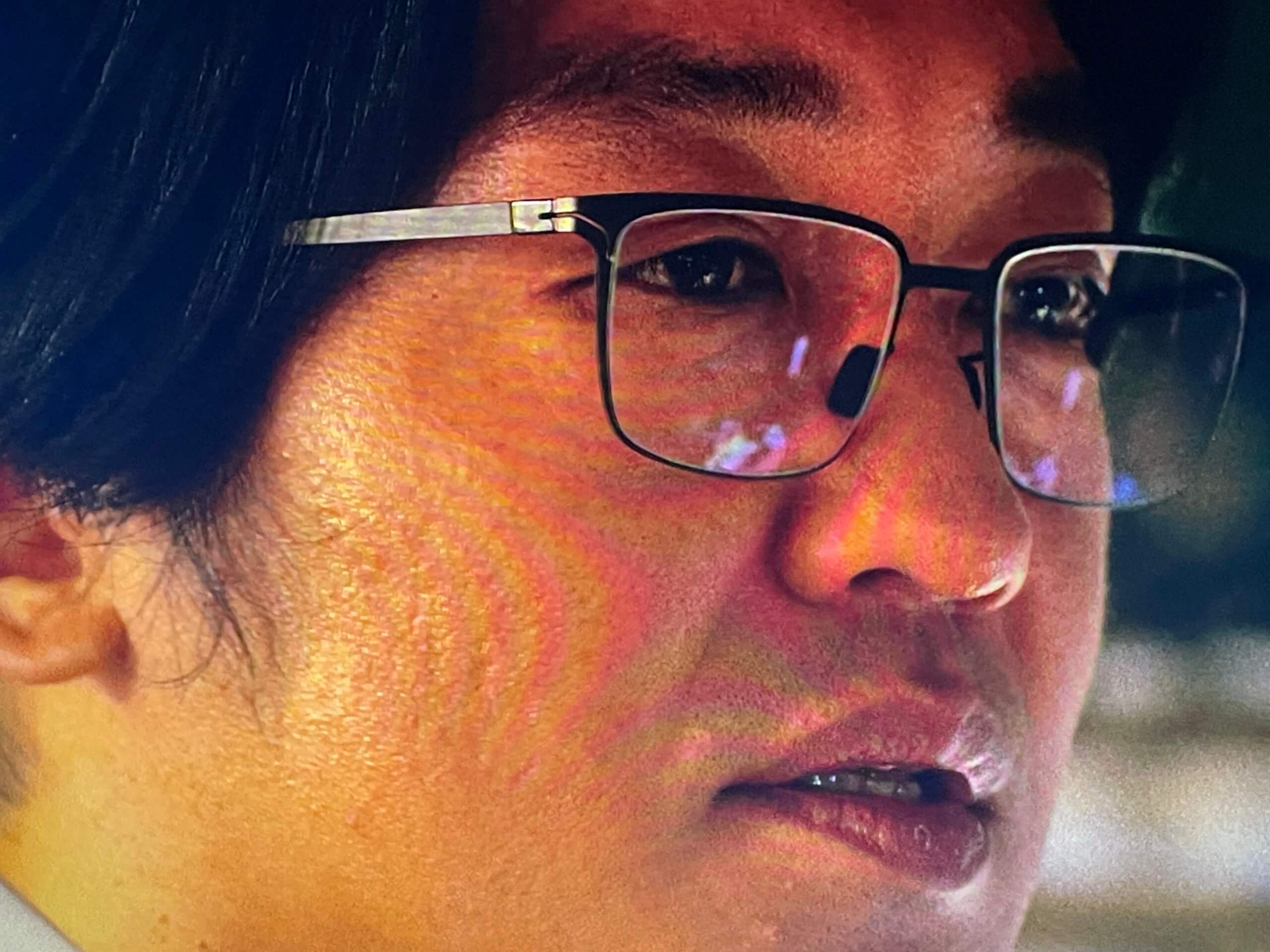
I highly recommend. THE SILENT SEA, and suspect that Netflix now has me pegged in its algorithm as a person who loves Korean-produced thrillers/sci-fi. I might need to give the Koreans their own category on my site. The product is so good, I can’t stop watching and when I watch, I always review.
STATION ELEVEN, A No-Spoiler Review
Last week, a few members of my family watched all ten episodes of STATION ELEVEN. This HBO Max miniseries is based on a novel by Canadian author, Emily St. John Mandel.
As a dystopian story, this series pleased all of us, different generations and genders. I rate it PG or PG13. The topic is challenging, but the people in STATION ELEVEN are not vile or overly violent…not much gore or explicit sexual content to worry parents…however, the subject matter is sophisticated, a web of relationships. It’s family-friendly with mature teens and if your kid is a drama-geek, they will LOVE this show.
First, My Short Review: 6 Reasons I recommend STATION ELEVEN
- The storyteller uses a familiar trope, a world destroyed by a deadly and contagious flu, but delivers an unexpected cast of characters, as well as a post apocalyptic vision of hope
- The angle on “life-after-the-fall-of-civilization” captures something both historic and literary in how human beings find meaning in the broken world they inhabit
- The characters shine and fail, change and surprise
- A fun cast as ethnically diverse as it comes, and without stereotyping
- The city of Chicago or the wilds around Lake Michigan are featured in just about every episode…and that felt refreshing. Granted, I now live in the Upper Midwest, but new settings other than NY and LA are a welcome television treat
- STATION ELEVEN is self contained as a miniseries. Watch all 10 episodes and you have a complete experience…I like that.
The Longer Review
STATION ELEVEN, the miniseries, is based on a novel I have not read. One scifi-reader friend told me he found that novel difficult to “get into” as a book. He felt impatient with it, complaining how it took too long to get to the dystopian world scenario. He was bored by all of the setup and character development that took place before the prime action. That feedback makes me curious to read the novel and then analyze how Peter Sommerville’s screenplay adaptation made adjustments because I did not feel this while watching STATION ELEVEN. The first episode features the unraveling of the world and the tensions inherent in societal breakdown. It focuses on two main characters: Kirsten and Jeeven, a young actress and the man who winds up becoming her caretaker. The subsequent episodes put forward backstory that help build the world and the complex web of relationships. But…I cannot say that the initial story in episode 1 bored me in any way.
Following a traumatic event at a Chicago theater performance of King Lear, Jeeven (an audience member at the theater) is warned by his sister, a doctor on the front lines of the flu pandemic, to get to a market, buy food and make his way to their brother’s high rise apartment. Kirsten, who is a young actress in the play, tags along with him. Jeeven tries to take her home but is unable to locate her parents, so he takes her with him to a market and buys six grocery carts full of food. Together, they push those carts to Frank’s apartment complex, load them on the utility elevator and end up safe with Frank (for a while) as the rest of society crumbles around them. Technology fails, little by little, including their electricity. There is little contact with the outside world. Kirsten entertains herself by disappearing into the world of a graphic novel called Station Eleven. She begins to write a play based on the novel…a book written by Miranda Carroll (Danielle Deadwyler) the ex-wife of Kirsten’s acting mentor, Arthur Leander (played by Gael García Bernal). Leander is a key character in the threads of this story, despite the fact that he is one who collapses and dies on stage while playing Lear in the first minutes of the series.
Jeeven, Frank and Kirsten do not fall to the flu. They stay safe and relatively well-fed in the apartment despite freezing temperatures. However, their haven doesn’t last forever and eventually, the author exploits this trope; the survivors must leave their haven and brave the outside world.
In this next section of the story, Kirsten finds her way to a shakespearean acting troupe. They become her new family. The drama troupe travels around Lake Michigan in the warmer months, performing among other plays, Hamlet. This is one of the surprising twists in the post-pandemic dystopia, to put forward the idea that the arts will continue and be celebrated by many despite how raw life has become for survivors. You will have to watch to find out what happens to Jeeven and Frank. The two brothers are wonderful characters…memorable and complicated.
There is another storyline that enters the series at this point, still somewhat connected relationally and geographically. It’s a surprise, but not an unwelcome one and adds to much of the backstory. Still, the audience does not know how this new storyline will connect to Kirsten’s. It does and it did not disappoint me.
What is woven through STATION ELEVEN is how the connective tissue of our friendships and relationships emerge even in a time of trauma and loss. The storyteller takes us to a place that might seem contrived, yet captures a potential truth, reminding the audience that connections matter and that the truths underlying relationships, like those put on the stage by William Shakespeare, are universal and relevant (especially relevant) to the human experience post pandemic.
ALL SYSTEMS RED, by Martha Wells, A No-Spoiler Review of the first novella in the Murderbot Diaries Series

ALL SYSTEMS RED is a story, entertaining and well-written, that one can read in about 4 hours. Rated PG-13 for adult themes. I read this novella on a flight from Minneapolis to Seattle. I flew on Delta and none of the airline’s tv/film options seemed very thrilling to me. I often try to see HBO or Showtime options when on a flight because I don’t subscribe to either of those services in real life. Thank goodness I had taken this book with me, hardback, but thin, lightweight and easy to pack because it’s only 127 pages.
And now, for my Short, No-Spoiler Review
I highly recommend ALL SYSTEMS RED for these 5 reasons.
- Original voice…the narrator has the appeal of an innocent, he/she is like a child, yet holds the capacity to narrate a futuristic society inhabited by humans and AI living and working together
- Genre bending…science fiction merged with mystery…in other words, a page-turner
- Thought-provoking ideas about AI and how future humans might understand morality/humanity in regards to AI
- Interesting world-building and a great set-up for subsequent stories
- ALL SYSTEMS RED would make a great audiobook. See the longer review for more
Longer Review:
Martha Wells has created a fascinating universe of humanity working and living off Earth, in space, in places that can only be reached via light-speed travel. She doesn’t fixate on the physics of the issue (regarding traveling across vast distances) but focuses on the gritty work life of humans and their bots. In the author’s futuristic world, full AI exist as sex workers and security units (SecUnits) and other helps in life. Also, some humans adopt robotic parts (augmented humans). So, there is a mix of how humans have integrated with tech and within the story world, there is little “judgment” about these realities.
While this is all true, the AI mind that narrates this story has a judgment about itself and humans. The view is not completely skewed toward disgust for humans, though there is some leaning in this direction. Granted, I’ve only read the first 1.5 novellas. But what works in the narrative is that Wells has put forward a more dispassionate, yet charming view of the world the way it is. I highly recommend these novellas as entertainment and am slowly discovering how they speak into deeper moral questions around humanity’s race toward the future, a future in which robots and artificial intelligence will be embedded. These books might appeal to the YA reader because the narrator is endearing and “young” feeling. The value in their education would be the discussion around tech and humanity’s future.
Regarding the narrator. The voice is absolutely charming. I did not listen to the book, but can imagine the voice. This book would be a pleasure to listen to.
To buy the first book, click on All Systems Red
Four of the series in hardback can be bought together. Click on Murderbot Diaries
For the least expensive version to try out novella #1, click on Kindle version: All Systems Red
For the audio version of novella #1, click on Audio of All Systems Red
SPACE SWEEPERS, A No Spoiler Review

5 Reason to Watch Space Sweepers, The Short Review
- characters, they’re funny, quirky and smart…They reminded me of many beloved STAR WARS characters
- Special effects, on par with cinematic space opera’s like Star Wars
- Family friendly, nothing offensive for parents trying to figure out what to show their kids
- Excellent space battles
- An ultimate choice for the main character(s) that packs an emotional punch
 The Longer Review
The Longer Review
This film assumes a space opera vibe and so reminded me of Star Wars, yet felt original. The pacing of this screenplay gave exactly the right amount of info while embedding a few nuggets that made me go back a rewatch portions. That was rewarding and I loved the heartbeat of the story’s core…the transformation of a rogue…think of Han Solo and his journey.
Not that this story only bleeds a happy ending. There is a tragic trade that takes place, a brutal choice for the main character. However, the overall adventure ranked above my expectations. When I’m streaming something online like this, I’m not expecting brilliance, but when it’s Korean made, I am coming to expect top-notch production. The Korean film industry is doing something right by focusing on great storytelling and upping the game at every turn when it comes to investing in the visual feast. SPACE SWEEPERS is no exception.

I will continue to seek out, watch and review Korean-produced scifi/horror/speculative fiction because in the last 2 years or more, the flow of great content is undeniable. For more Korean-productions that I’ve reviewed, see:
KINGDOM, A Review of a Korean-Made Masterpiece
SQUID GAME, A Review without Spoilers
TRAIN TO BUSAN, A No Spoiler Review
ONE SECOND AFTER, A No-Spoiler Review of the Novel, by William R. Forstchen
My son handed me this paperback during the pandemic. Here, Mom. I think you’d like this book. I read at night before bed. This book gave me nightmares. If you have a teen who loves dystopian fiction he/she might like the book. The main character is a man, but there are young people who play prominent roles as society unravels.
For educators, this book is a fascinating study of civilization as the US is attacked and falls apart. It has potential to lead to fruitful conversations about the US constitution. We often take for granted aspects of our rights, but rights are not easily preserved when society unravels. They are hard to maintain and ensure and leaders make hard choices to reward those who live by the law, and hard choices to punish those who reject it. All that is in this book in a stark way. Great discussion fodder.
I did like this novel, mostly. Here are 5 Reason I recommend ONE SECOND AFTER
- Decent storytelling and an interesting unique setting
- A thoughtful and action-oriented main character, mostly well-written, though the story is so male-centric, I cringed here and there
- A frightening premise that a few “experts” have warned is a real-world possibility
- Page-turning tension
- This book caused me to reflect on how our quality of life/health depends on meds and how rights we assume are dependent on civilization upholding those rights by manner of the law
To buy this novel, click on One Second After
And now for my longer review…
ONE SECOND AFTER, rated PG for some violence, is the story of a mountain community outside of Asheville, North Carolina post EMP attack. In this story, multiple electromagnetic pulse weapons are discharged in the atmosphere above the US, frying all electronics/microchips, etc. Thousands of planes crash, including Air Force 1, killing the president and his entourage…cars stop working (except for the older ones that have no electronic parts) and all modern forms of communication break down, including radio. Add to that no computers, no cell coverage, no refrigeration, no transportation, no heat or cooling, and you put most of the population on a quick path to discomfort, starvation, disease and lawlessness. This story is The Walking Dead, but without the zombies (unless you put desperate people willing to eat human flesh to survive in the same category as zombies).
I did watch most of the The Walking Dead and it became clear after a few seasons that the zombies were not the ones keeping humanity from becoming civilized again, it was regular “alive” people with education and supposed morality who were often the worst perpetrators of horrors. This novel follows the same vein.
The characters I found most interesting were those who tried to lead the group with some semblance of morality and decency. Sometimes, those characters felt a little contrived, but most of the time, I believed they could exist in the real world and appreciated how they were tempted regularly to abandon the Constitution, rights, and a sense of justice. Running a mini-dictatorship made more sense than all the work involved in self-governing, yet they persisted.
One poignant reality in the novel world is that because all trade has come to a standstill, there are no new meds to “take care of” human problems. Everything from a small cut, to heart disease, rotting teeth and diabetes have the potential to be a death sentence. Eventually, mental health is also a part of the discussion when the town elders realize that they might have to imprison or restrain those who might endure psychotic breaks from reality. So many people die in this story, but most die from either starvation or from lack of medicine. An interesting reality to ponder.
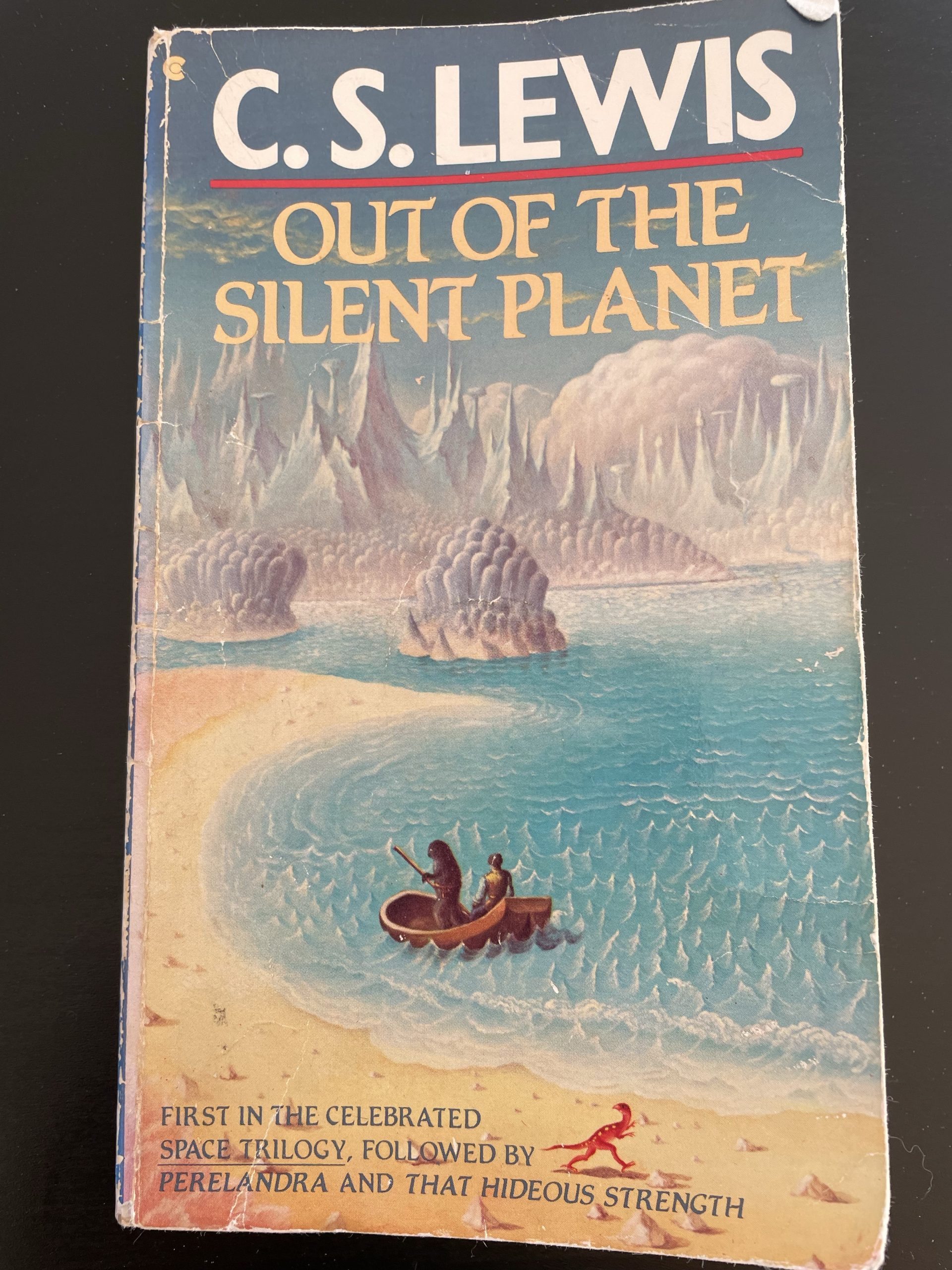
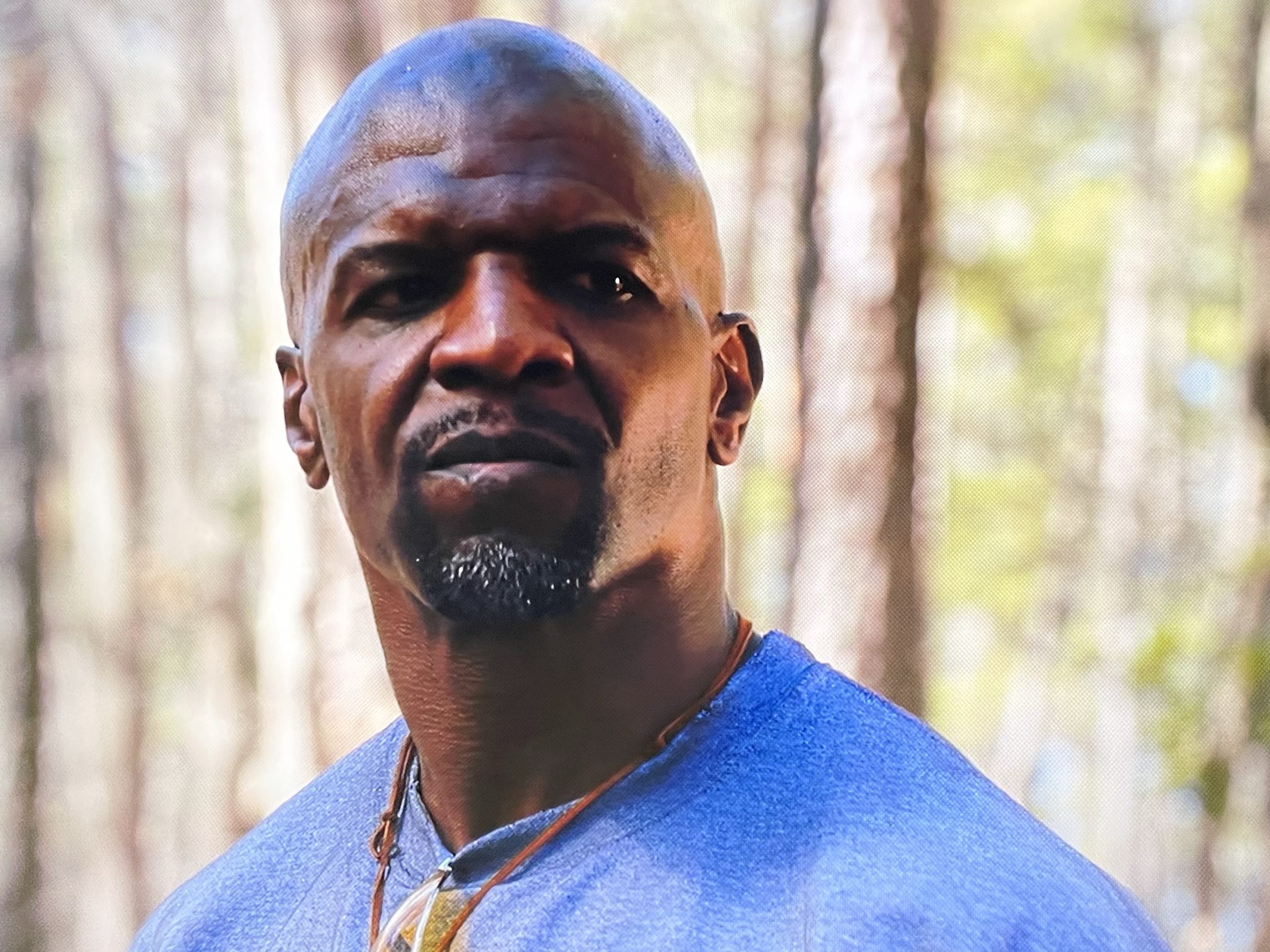
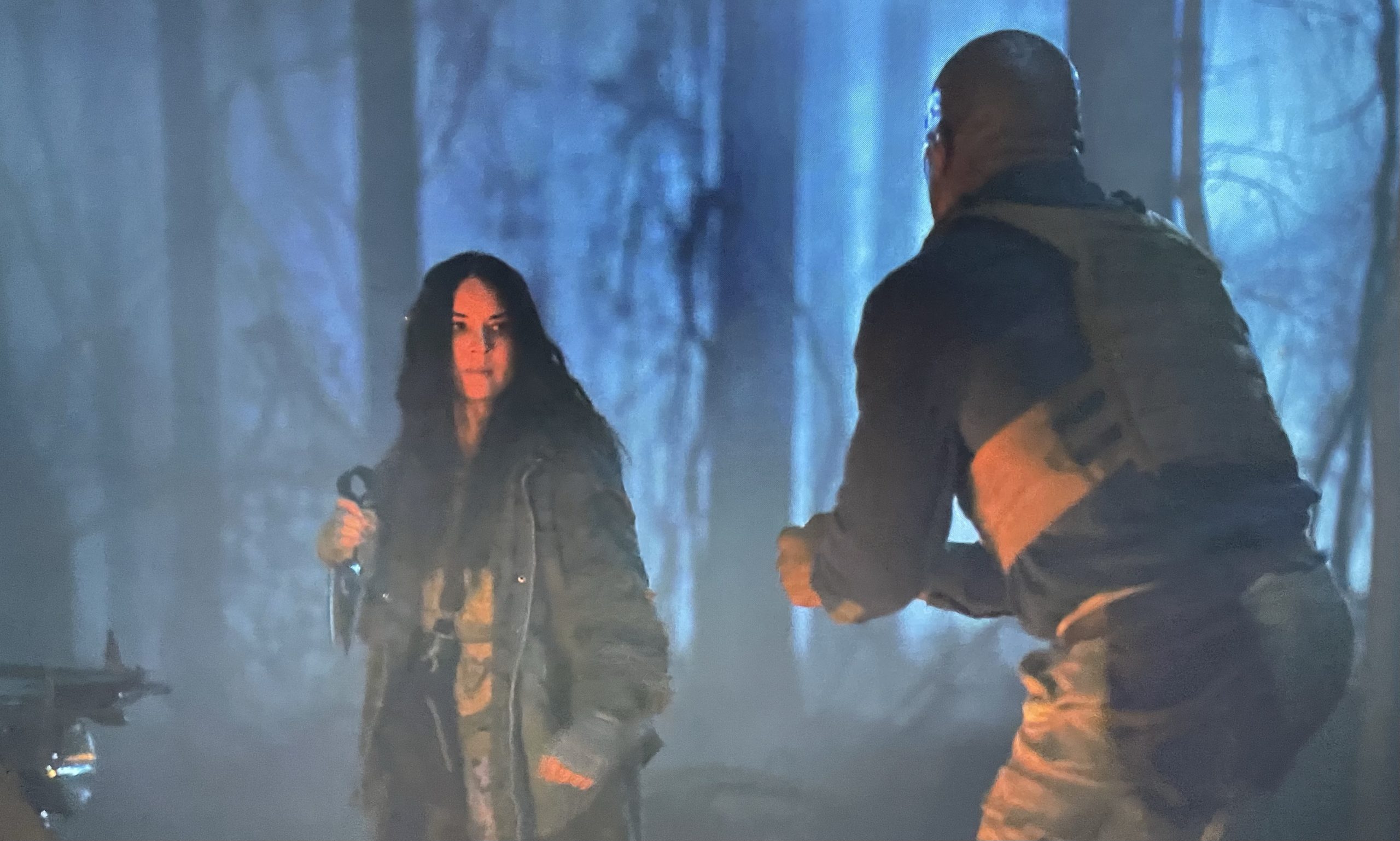




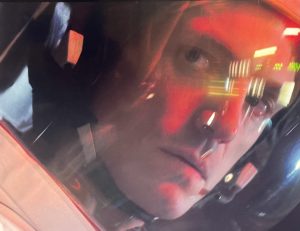
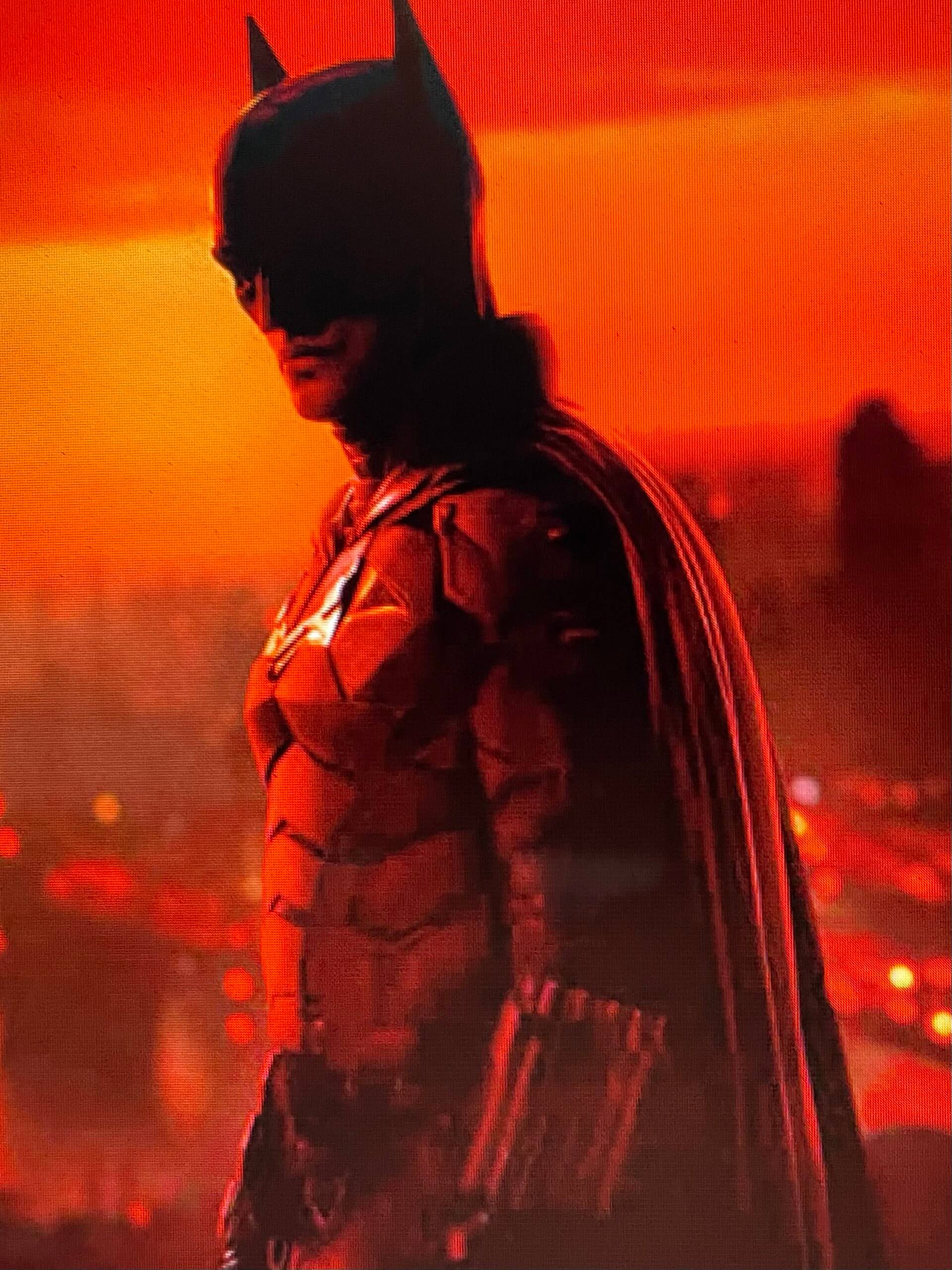





 The Longer Review
The Longer Review